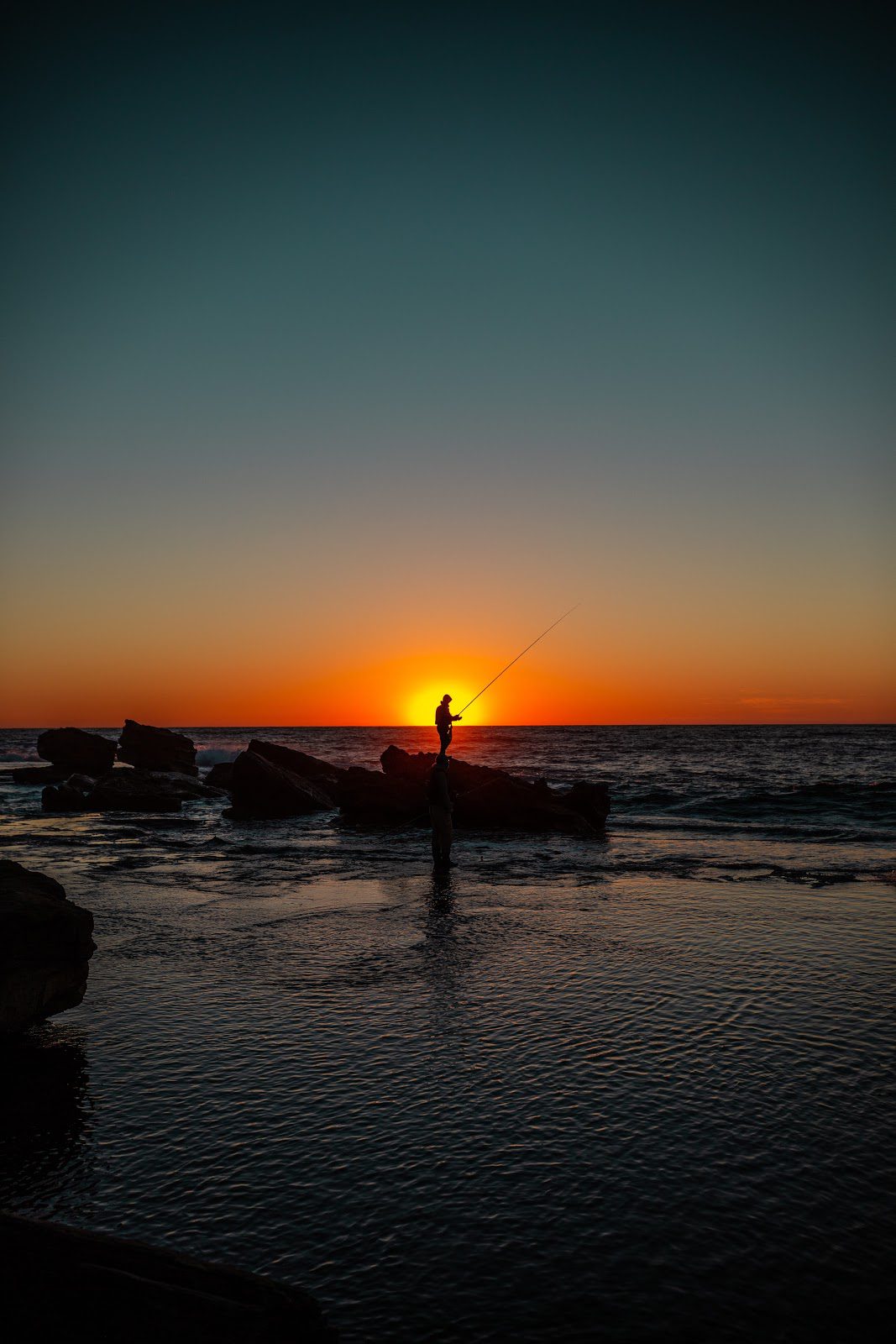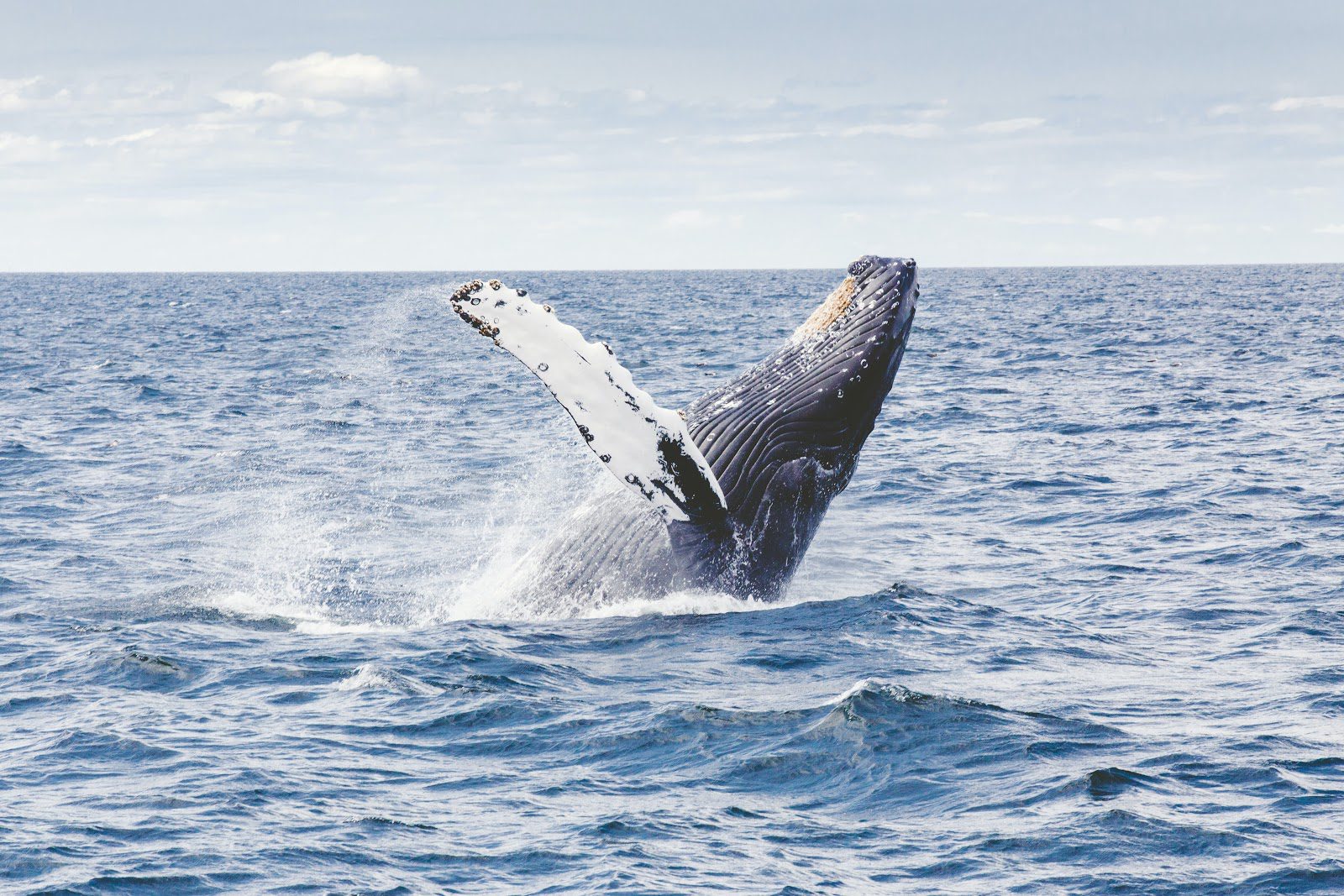As both a woman of faith and one who takes conscious steps to adopt earth-friendly practices in my life, I have recently found myself increasingly fascinated by how the story of Creation embodies ecological principles. Compelled by Creation, I decided to engage in an open-ended reflection on the day-by-day Genesis story.
And God said, ‘Let the water teem with living creatures, and let birds fly above the earth across the vault of the sky.’ So God created the great creatures of the sea and every living thing with which the water teems and that moves about in it, according to their kinds, and every winged bird according to its kind. And God saw that it was good. God blessed them and said, ‘Be fruitful and increase in number and fill the water in the seas, and let the birds increase on the earth.’
-Genesis 1: 20-22
Sometimes, you just need a break from the city.
As a young girl in New Orleans, I had the good fortune of having a close friend whose father was an avid fisherman. On select weekends, I’d be fetched on a Friday afternoon to snack on fried chicken with her family and spend the night—a necessity, since we’d be awoken while it was still dark out. We would pile into the car, bleary-eyed with sleep, ready to leave the Crescent City still dozing under the stars for our destination du jour: Shell Beach. En route to this refuge in St. Bernard Parish, we would stop along the way to grab bait, as well as doughnuts and hot chocolate, the perfect fuel for the long day of fishing.
I remember our solemn vow of silence, respectfully maintained, except when indicating we were casting our lines into the water. If we were too loud, we’d drive away the fish, which we wanted to coax our way. And come they did. There were so many trout, redfish, and flounders that even with what we kept to feed our families, we always had a surplus, which we sold to a local fish market for fifty dollars—a lot of money in those days.
Perhaps my fondest memory of those clear-skied, sultry, southern Louisiana Saturdays is the sense of awe I experienced when I glimpsed a circular ripple in the water, indicating that a swimming creature was near. Given the roughly 33,000 species of fish that populate our waters, the excitement of waiting to see what ilk might surface was palpable, as was the wonder I would feel when turning my gaze upwards to take in the groups of low-flying pelicans in V-formation. That God created so many varieties of sea and sky creatures on Day Five of Creation attests to His ingenious plan put into action as He began to populate the Earth.

Swimming and Flying
Yet another of our Maker’s many miracles is the species He created are so perfectly adapted to their living environments. Fins and gills allow fish to navigate and breathe in the waters. Similarly, wings bring birds up to soar in our skies, not to mention their instinct to their gift of flight to migrate from cold to warm climates during winter seasons.
Swimming, flying—acts that come naturally to fish and birds, are spectacular feats to which humans aspire. Beyond our admiration for the inhabitants of the sea and sky kingdoms is their power to mesmerize us. Fish and birds exist in such an impressive array of sizes, shapes, and colors that we can’t help but find ourselves awestruck by their beauty. Taken in tandem with their serene,gliding through the seas and skies, we are so spellbound we overlook the complex symbiotic relationship that our Earth’s species have developed over time.
Our Finned and Winged Friends
My idealized childhood memory involves fried-chicken fueled fishing expeditions, a reminder that, for many of us, fish and fowl occupy prime real estate in the food-chain. Be it for humans or other animals, these ever-reproducing life forms sustain others, and their continued proliferation is vital to global ecosystems.
However, pollution, the warming climate, and habitat loss gravely threaten our fish and bird species. The enormous quantities of sewage, food waste, and toxic oil-based plastic products we release into the ocean have devastating effects on marine species. It can hurt or kill many sea animals and give way to excess carbon dioxide and algae blooms, leading to diminished populations. Correspondingly, bird species may attempt to adjust to the warming climate by changing habitats where sadly, many can’t adapt quickly enough to survive. Even in the case of those who do manage to recalibrate their habits to align with new conditions, entire regions of our beautiful Earth are thrown off from their natural rhythms, having relied on them for plant pollination and seed dispersal.
Take the heartwrenching cases of the passenger pigeon, the Atlantic bluefin tuna, and the snowy owl. Once so numerous that the sheer weight of these pigeons’ nocturnal group roosting in trees caused entire branches to fall, these stunningly beautiful and speedy birds are now entirely extinct. The iconic bluefin tuna, noted for their size, weight, and predatory habits, is currently driven into endangerment due to overfishing. All Harry Potter fans will recognize the snowy owl, whose population is markedly in decline, primarily due to the changing habitat.
God explicitly commands fish and fowl to “be fruitful and increase in number” in Day Five of Creation and are found throughout the Bible, proving their vital importance to our seas and skies. God, in bringing birds and sea creatures to the Earth, provides abundantly. Let us take active steps to protect our friends in the seas and skies; we owe it to them, to ourselves, and to the Creator.





 Copyright
2025
Root and Vine
Copyright
2025
Root and Vine